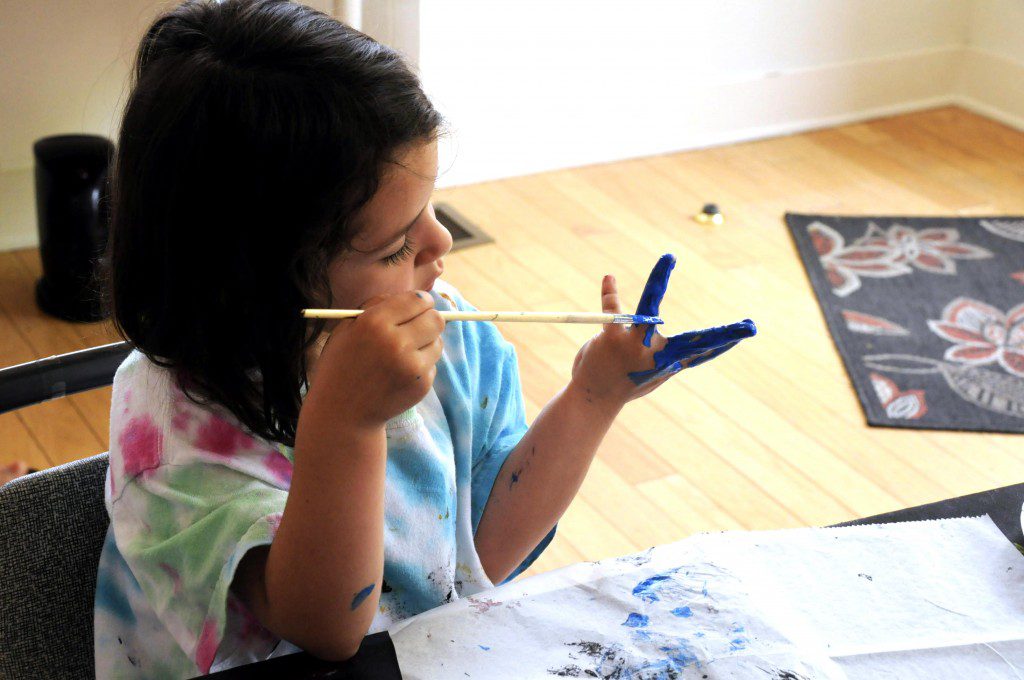How to talk to kids about art
“Kids are not little adults. But they are professionals. Their job is to play, their job is to experiment, their job is to try different things.”
Chuck Jones (the guy who drew Bugs Bunny)
On a regular basis students walk up to me holding a project, drawing, or photograph in their hand and ask if they’ll get an “A”. I hate this question for many reasons, that I”m not going to get into today. Instead I’m going to talk about how to talk to students about their art, so that they learn to make their own decisions.
No matter the age, art making is personal. Let me say that again, art making is personal.
And that’s why it can be hard to know how to talk about it, in a way that everyone is learning, and no one is getting hurt, or defeated about their art ability.
Young children naturally create. They love to draw and paint, and rarely can adults “tell” what they are drawing and or painting. In fact sometimes they’re creating something that doesn’t exist, and doesn’t have a name, that’s okay.
So how can you talk to you kids about their art in way that creates space for a conversation, allows your child the freedom to dream and be creative, and gives them the confidence to continue to create and decide what is and isn’t good?
The first and easiest, is to not expect them to identify what they just drew or painted. Stay away from asking, what is that, or trying to identify it yourself by saying, oh you drew a dog, or a cat or a horse. Instead ask questions.
Can you tell me about your drawing? ( as they tell you about their drawing or painting, you can add in more specific questions based on what they are telling you. But work to keep your opinion out of it, and stay focused on asking them questions.)
What is your favorite thing about the painting that you made?
Why is this your favorite?
How did you feel when you were making the piece of art?
As they are working, you want to try to keep your thoughts, feelings, and opinions out of the process and focus on understanding the child’s.
While it can be tempting to do a lot of praising. Like I love your painting. Or I love that color. Try not to praise too often, and instead enjoy watching them explore and imagine. Each time you praise, you’re telling them that , that choice was better than something else.
Things not to say:
” is it done yet?” ( they’ll let you know) While you will likely be tempted to stop them before their whole painting turns black, remember that for kids a big part of art making is about the process and not the end result. They’re having fun, exploring, experimenting, and imagining. They’ll tell you when they want a new piece of paper. )
” Who ever heard of a purple dog?” ( they will likely want to create things that don’t exist and that’s fine. While you’re saying this might even be sarcastic, they likely won’t understand , and will think that making a purple dog it wrong. )
“What is it?”
” Try to be cleaner next time…. sorry folks, but art making is messy, and usually a part of the process. “
“Let me do it for you.” ( there’s nothing wrong with helping your child practice something that they’re having trouble with, or helping if they ask. But I suggest helping them on a separate piece of paper, and then allowing them to try on their own piece of paper. )
When talking about their art, work to focus on colors, shapes, textures and lines, instead of what you ” think” it is.
You might say, I enjoy the repeated circles.
The first thing that I see in your work is….
If your child made several pieces throughout the day, you can ask them which one is their favorite. Or talk to them about where and how they wish to display their work.
The main thing, as hard as it , is to keep your opinion out of it. Ask questions , instead of giving answers.
When students ask if they’ll get an “A” I might ask:
– Do you think that it deserves an “A”. ( they usually know)
When they ask if something is good.
I might respond, what do you think?
or , did you use the composition guidelines?
Most of the time, if you don’t give an answer, they do have an answer and opinion.
Have you signed your kids up for the summer art exploration? Find out more.

